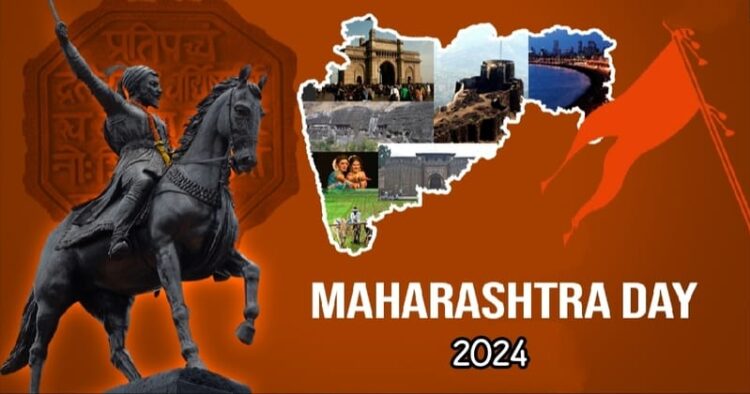Maharashtra Day, observed on May 1 each year, commemorates the formation of the State of Maharashtra in 1960. This significant day holds deep cultural and historical importance, symbolising the culmination of the struggles for linguistic identity and cultural autonomy. As Maharashtra celebrates its rich heritage and progress, it also reflects on the journey from adversity to prosperity.
Maharashtra emerged from the Bombay Reorganisation Act, which came into effect on the linguistic lines. The act created two new states out of the erstwhile Bombay State – Maharashtra, for the Marathi-speaking people, and Gujarat, for those whose mother tongue is Gujarati. Before 1960, Maharashtra was part of the larger Bombay State, which included present-day Maharashtra, Gujarat and parts of Madhya Pradesh. People spoke different languages, such as Marathi, Gujarati, Kutchi, and Konkani. However, recognising the linguistic and cultural differences between regions, the States Reorganisation Commission recommended the formation of States based on language. As a result, Maharashtra, predominantly Marathi-speaking, was established as a separate State, with Mumbai (then Bombay) as its capital.
The creation of Maharashtra was not merely a bureaucratic decision; it was a triumph of the aspirations and struggles of the Marathi-speaking people who fought tirelessly for their linguistic identity and cultural autonomy. The Samyukta Maharashtra movement, characterised by widespread protests, rallies and demonstrations, played a crucial role in shaping the State’s destiny.
Maharashtra Day is a celebration of this hard-fought victory for linguistic and cultural rights. It is a day to honour the sacrifices made by countless individuals who dedicated their lives to the cause of Maharashtra’s formation. From the leaders of the Samyukta Maharashtra Samiti to the ordinary citizens who participated in peaceful protests, Maharashtra Day pays homage to their unwavering commitment and resilience.
Showcasing the rich heritage and traditions of these regions, this day holds deep significance for the people of these regions, reflecting their unique histories, cultural identities, and contributions to the nation. Celebrated with full enthusiasm, the day is marked by cultural programmes, competitions, and seminars to honour the State’s establishment and progress. Maharashtra Day, which falls on the same day as International Labour Day, is a regional public holiday.
Today, Maharashtra stands as a beacon of progress and innovation, boasting a robust economy, vibrant culture, and diverse society. The State’s capital, Mumbai, is a global financial hub and a melting pot of cultures, reflecting Maharashtra’s cosmopolitan outlook. Maharashtra Day celebrations showcase the State’s rich heritage through cultural programs, exhibitions, and seminars, highlighting its contributions to the nation’s cultural tapestry.





















Comments